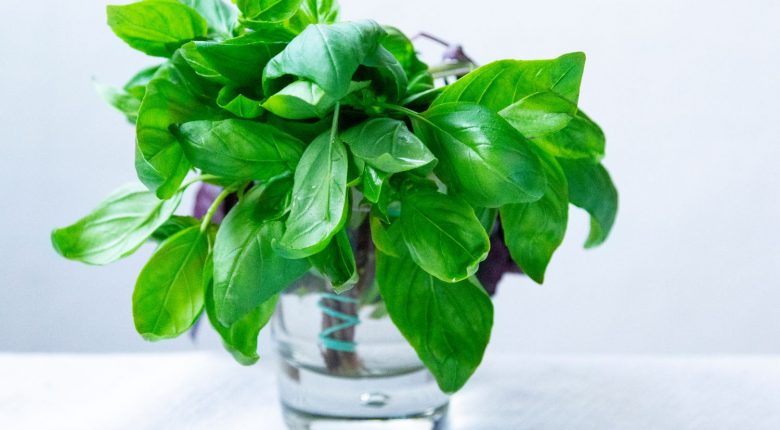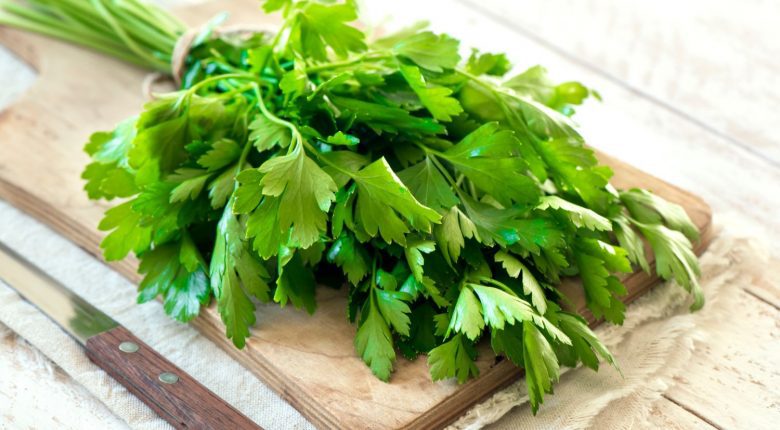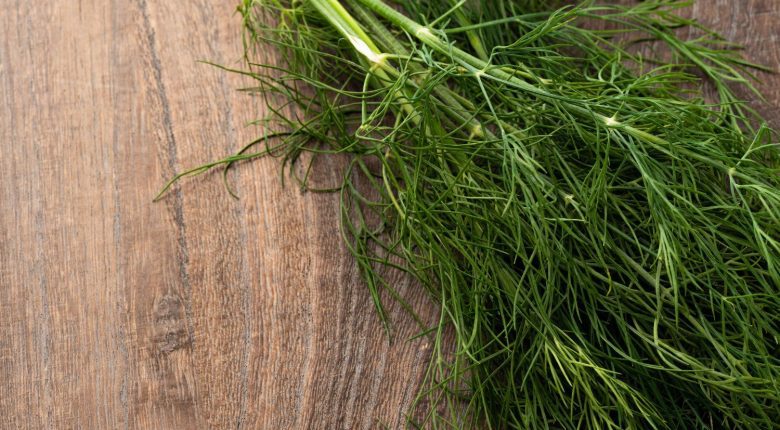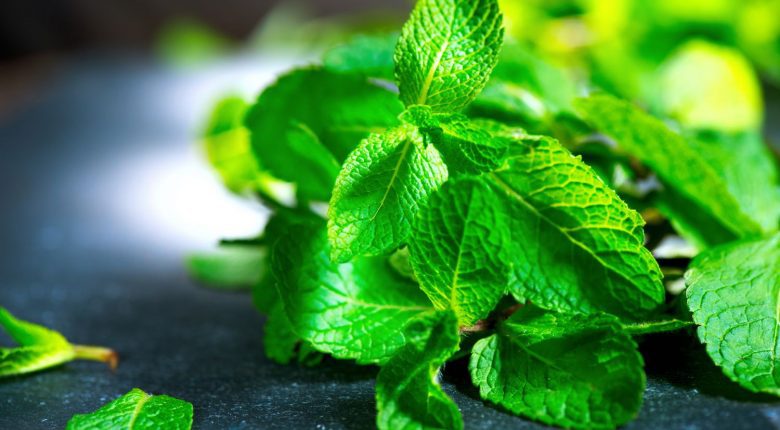The Importance of Properly Handling and Storing Fresh Herbs
Fresh herbs are a delightful addition to any culinary creation. Their vibrant flavours and aromatic profiles can elevate the taste and visual appeal of your dishes. However, to fully enjoy their benefits, it’s crucial to handle and store fresh herbs correctly. In this guide, we’ll walk you through the step-by-step process of cleaning and storing fresh herbs to maintain their freshness and flavour for longer.
Why Properly Clean and Store Fresh Herbs?
Before diving into the cleaning and storage methods, let’s understand why it’s essential to handle fresh herbs with care. By following proper cleaning and storage techniques, you can:
- Preserve Flavor: Fresh herbs delicately hold flavors that are prone to compromise. Proper cleaning and storage techniques help retain their natural taste, enhancing the overall dish.
- Extend Shelf Life: Fresh herbs are perishable and can wilt or spoil quickly if not stored correctly. By employing appropriate storage methods, you can prolong their shelf life and reduce waste.
- Promote Hygiene: Cleaning fresh herbs thoroughly eliminates dirt, pesticides, and other contaminants, ensuring you enjoy a safe and healthy culinary experience.
Cleaning Fresh Herbs: Step-by-Step Guide and Tips
Whether it is store-bought, or garden-cut herbs, Cleaning fresh herbs is a crucial step that removes any dirt, pesticides, or other impurities. Here’s a step-by-step guide to help you clean your fresh herbs properly at home:
Step 1: Gather Your Supplies
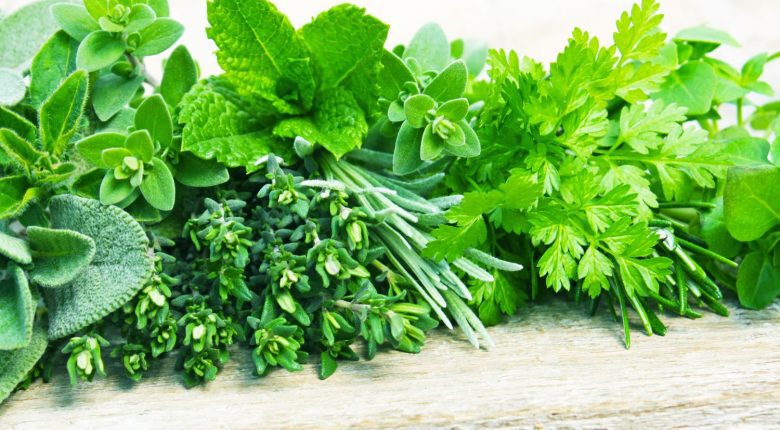 Before you begin, ensure you have the following items ready:
Before you begin, ensure you have the following items ready:
- Fresh cut herbs
- A colander or sieve
- Clean water
- A salad spinner or clean kitchen towels/paper towels
- Scissors or a sharp knife
Step 2: Inspect and Discard
Carefully inspect the fresh herbs for any damaged or wilted leaves. Remove any discoloured or rotten parts, as they can affect the flavour and quality of your herbs.
Step 3: Rinse Cut Herbs Under Cold Water
Hold the fresh herbs under cold running water. Gently swish them to dislodge any dirt or debris. Ensure that each leaf gets thoroughly rinsed, paying extra attention to the stems.
Step 4: Pat Dry
Shake off excess water and place the rinsed herbs on a clean kitchen towel or paper towel. Gently pat them dry to remove the remaining moisture. Alternatively, use a salad spinner to spin dry the herbs effectively.
Step 5: Trim and Store
Trim the stems of the herbs if necessary, removing any brown or woody ends. Once trimmed, you have two storage options:
Store and preserve your fresh herbs.
What is the best way to store parsley, basil, or Coriander?
Method 1: Glass Jar Storage
- Fill a glass jar with an inch or two of water.
- Place the trimmed herbs in the jar, ensuring the stems are submerged in water.
Method 2: Damp Paper Towel Wrap
- Take a damp paper towel and spread it on a clean, flat surface.
- Place the herbs on the towel and roll them up loosely.
- See details for each herb below.

Storing Fresh Herbs: Best Practices
- To maximize the shelf life and flavour of your fresh herbs, follow these best practices for proper storage:
- Temperature and Humidity: Fresh herbs thrive in cool and slightly humid conditions. Store them in the refrigerator’s vegetable drawer or place them in a cool spot in your kitchen to keep them alive.
- Moisture Control: Excess moisture can cause herbs to wilt or become slimy. Ensure the herbs are adequately dried before storing them.
- Avoid Overcrowding: Give your fresh herbs enough space to breathe. Overcrowding can lead to moisture build up and faster spoilage. If storing different types of herbs together, wrap them separately to prevent flavour transfer.
- Label and Date: Keep track of the freshness by labelling and dating the storage containers. This way, you can prioritize the use of herbs based on their shelf life.
Liebherr FlexSystem can be a very useful and conveniant way to store your cut fresh herb.
Can Fresh Herbs be Preserved in the Freezer? Pros and Cons
Freezing is a common preservation method for various food items, but when it comes to fresh-cut herbs, the question arises: can they be preserved in the freezer?
Pros of Freezing Fresh Herbs
- Extended Shelf Life: Freezing fresh herbs can significantly extend their shelf life compared to refrigeration or leaving them at room temperature. Properly frozen herbs can retain their flavours and aroma for several months.
- Convenience: By freezing herbs, you can have a ready supply of your favourite herbs available at any time, regardless of their seasonal availability. This allows you to enjoy their flavours and benefits throughout the year.
Cons of Freezing Fresh Herbs
Texture Changes: Freezing can alter the texture of fresh herbs. Some herbs, like basil and mint, tend to become wilted and mushy after thawing, losing their crispness and visual appeal. This texture change may not be desirable for certain recipes.
The Best Freezing Methods for Fresh Herbs
If you decide to freeze your fresh herbs at home for long-term storage, here are a few recommended methods to preserve their quality: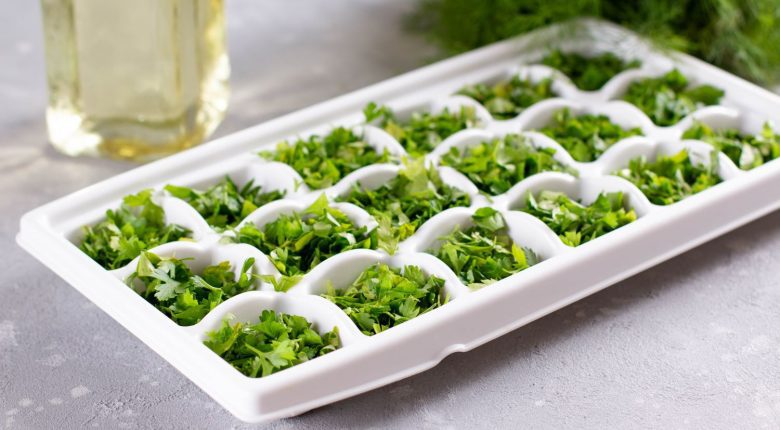
- Flash Freezing: This method involves placing clean, dry herbs on a baking sheet in a single layer and freezing them at -18°C until solid. Once frozen, transfer the herbs to airtight containers or freezer bags. This method allows you to easily remove individual herbs as needed.
- Herb Oil Cubes: Another option is to chop the herbs finely and place them in ice cube trays. Fill each cube with a little oil (such as olive oil) and freeze. Once frozen, transfer the herb oil cubes to a freezer-safe container or bag. During cooking, you can directly add these cubes to dishes.
- Herb Pesto: Blend fresh herbs with oil, garlic, nuts, and cheese (if desired) to create a flavourful herb pesto. Spoon the pesto into ice cube trays and freeze. Once frozen, transfer the herb pesto cubes to a freezer-safe container. Thaw these cubes and conveniently add them to various recipes as a flavorful herb seasoning.
- Liebherr freezing tray is another convenient method. You can freeze herbs individually for preservation.
Fresh Herbs that Can be Successfully Preserved in the Refrigerator
When it comes to preserving fresh herbs, the refrigerator can be a reliable ally. Here are some fresh herbs that can be preserved in the refrigerator:
Parsley
Parsley is a versatile herb commonly used as a garnish or to add freshness to various dishes. To store parsley in the refrigerator, follow these steps:
- Trim the stems and remove any yellowed or wilted leaves.
- Fill a glass or jar with a few inches of water.
- Place the parsley stems in the glass, ensuring the cut ends are submerged in water.
- Store in the refrigerator and change the water every few days.

Coriander
In many cuisines, coriander, or cilantro, earns popularity for its vibrant flavor. Here’s how to preserve cilantro in the refrigerator:
- Trim the ends of the coriander stems.
- Place the cilantro bunch in a jar or glass filled with an inch or two of water.
- Store in the refrigerator and remember to change the water every few days.
Dill
Dill is a fragrant herb commonly used in pickling, seafood dishes, and sauces. Follow these steps to store dill in the refrigerator:
- Trim the ends of the dill stems.
- Fill a glass or jar with a few inches of water.
- Place the dill stems in the glass, ensuring the cut ends are submerged in water.
- Store in the refrigerator, changing the water every few days.
Mint
Mint is a refreshing herb used in beverages, desserts, and savoury dishes. To preserve mint in the refrigerator, use the following method:
- Trim the mint stems, removing any damaged or discoloured leaves.
- Wrap the mint loosely in a damp paper towel.
- Store in the refrigerator, ensuring proper airflow.

Basil
Basil is a popular herb in Italian cuisine, valued for its distinct aroma and taste. Follow these steps to preserve basil in the refrigerator:
- Trim the basil stems, removing any yellowed or damaged leaves.
- Fill a glass or jar with an inch or two of water.
- Place the basil stems in the glass, ensuring the cut ends are submerged in water.
- Store in the refrigerator, changing the water regularly.
With BioFresh, preserve your herbs, fruits and vegetables thanks to Liebherr fridges.
Conclusion
Remember to experiment and explore different herbs to enhance your cooking experience. By implementing these techniques, you’ll ensure that your dishes burst with vibrant flavours and enticing aromas of fresh herbs.
